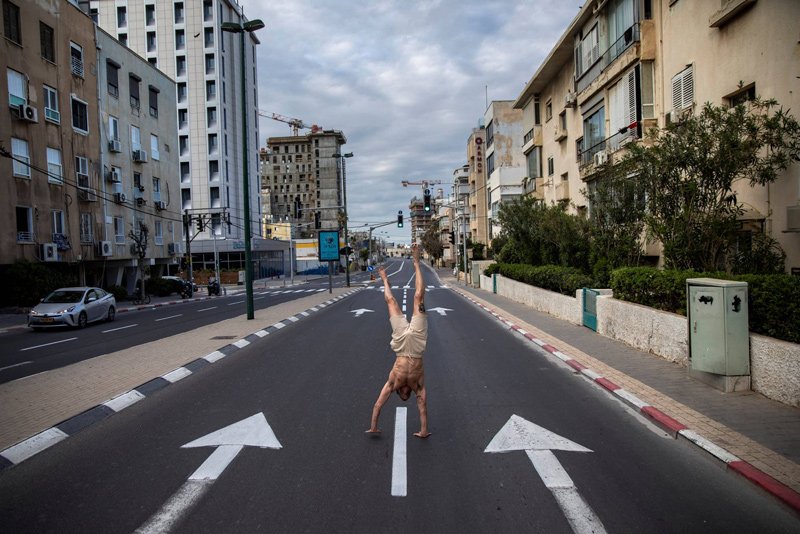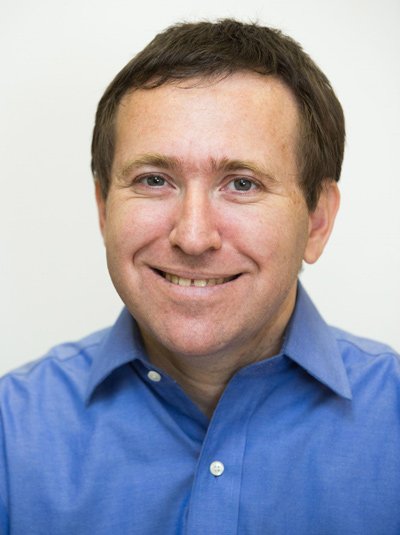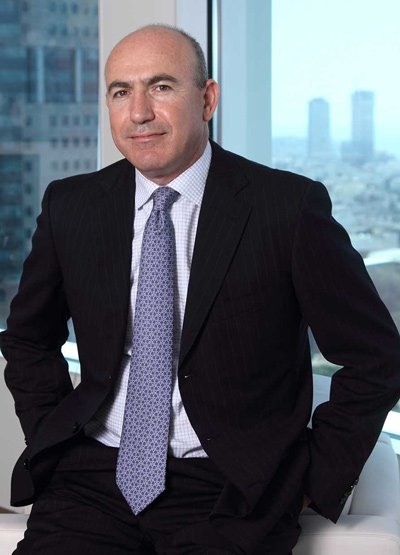Editor’s note: Dr. Hagai Levine is an associate professor at Hebrew University’s Braun School of Public Health and Community Medicine and chairman of the Association of Public Health Physicians. Recently, he reported that school openings wiped out the lockdown gains in Israel and compiled a report showing air pollution adding to the COVID-19 death rate.


Israel’s new lockdown is the “stupidest and most hazardous solution” to its coronavirus woes, according to doctors union chief Hagai Levine, a member of the coronavirus czar’s expert panel.
While Ronni Gamzu, the virus point man he advises, has backed the closure, which starts Friday, Levine is resolutely opposed, insisting that, contrary to the warnings of some hospital heads, the health system isn’t in danger of meltdown and therefore the step isn’t justified.
Despite strong condemnation from business leaders and criticism from opposition politicians, the government has taken the view that with cases spiraling, and hospitalizations rising, a lockdown is the only option. “There is no choice but to impose a lockdown,” said Health Minister Yuli Edelstein, as the government prepared to approve the measure. “This is a difficult day for the country. But there is no other choice but this proposal.”
But Levine, an epidemiologist, told The Times of Israel that Israel needs to fight the virus by changing the public’s conduct for the duration of the pandemic, not by investing hopes in a three-week lockdown. “The goal should be to change behavior, how people relate to the disease. And if you put a hammer to people’s heads this won’t change,” he said.

Levine works on predictions for the pandemic with two Hebrew University experts on stats and modeling. One of them, economist David Gershon, told The Times of Israel he is convinced that the closure won’t bring the desired results, and the government will end up deploying a third lockdown.
“They are destroying the country, but we’ll be back in the same situation soon,” Gershon said.
Levine argued: “You need a balanced approach, not one that will kill the Israeli spirit. We could gain control over the pandemic with a rational plan that would lower infection.”
Such a plan could be simple, he said, like allowing life to continue, socially distanced and with one exception: a blanket ban on more than 10 people in the same indoor space.

Proponents of the lockdown say it is good for the general health of the nation, by protecting the health system from becoming overstretched. But Levine, confident that the health system has capacity to cope, says they are wrong.
“You have to look at the health of all populations, not COVID-19 only, and people don’t understand that you need to look at the overall picture,” he said. “They don’t see the healthy people who will become depressed, lose health because of economic reasons, become subject to violence, or gain weight and die of a heart attack.”
Gershon predicted that Israel could find itself in another lockdown as soon as December. “The lockdown is not going to bring the results we think it will bring, and we’ll be back in the same situation in three months,” he predicted.
Daily confirmed coronavirus cases surged to a record 5,523 on Tuesday.
Gershon acknowledged that there is alarm over high infection rates, but said they are not translating to hospitals being pushed to over capacity, and even if they did, they can stretch.

“We should not shut down the country because of infected cases per day,” he commented. “This is more a media pandemic. The media is making such a fuss regarding the numbers. The scale we are at in hospitals is really relatively low.”
There are currently 535 coronavirus patients in serious condition, and it has been widely suggested that hospitals will struggle if they have upwards of 1,000 such cases. Noting that hospital officials have said that staffing, not physical space, is their main challenge, Gershon said that the state is able to deploy extra staff, as it would in the case of a natural disaster, and should quickly invest in manpower in order to quell fears of the system being overwhelmed.
“It should make the necessary investment and deal with it,” he said. “What would they tell people if there was an earthquake — to stay at home? That we don’t have capacity in hospitals?”
He added: ”The country has to learn to live with COVID-19… We need to be able to live with even 2,000 patients in serious situation.”
Gershon argued: “Where we are now doesn’t justify closing the country. The people who want to see zero, or 200, new cases a day aren’t being realistic. Under 500 also isn’t going to happen. The virus is not stoppable, so we have to learn to live with it.”